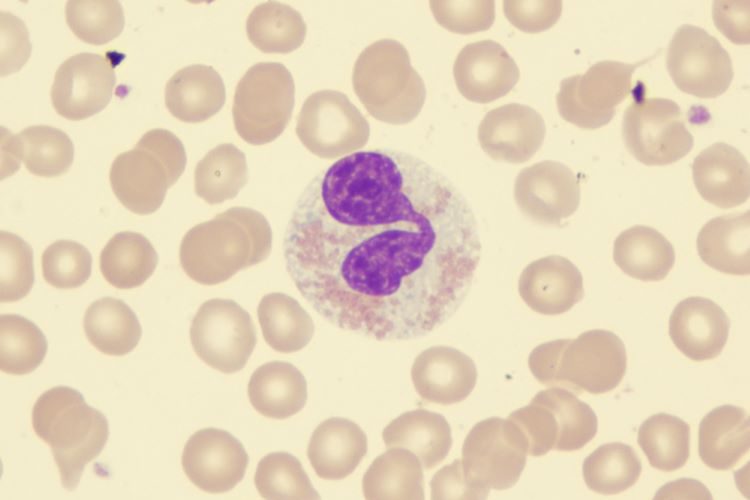Phase III data for novel telomerase inhibitor released
Posted: 5 December 2023 | Catherine Eckford (European Pharmaceutical Review) | No comments yet
Currently, imetelstat is being reviewed by the FDA and EMA for the treatment of transfusion-dependent anaemia in adults with lower risk MDS.


Results from Geron’s Phase III IMerge trial evaluating its first-in-class investigational telomerase inhibitor imetelstat, have shown long-term and durable response in participants with a rare haematologic malignancy.
Efficacy of the treatment was compared to placebo in patients with lower risk myelodysplastic syndromes (MDS) relapsed/refractory or ineligible for erythropoiesis stimulating agents (ESAs).
The promise of telomerase inhibitors for treating blood cancer
Trial results
The clinical trial enrolled a total of 178 patients. Mean haemoglobin levels in imetelstat-treated patients increased significantly over time compared to placebo patients. For patients achieving eight-week transfusion independence, median increases in haemoglobin were 3.6 g/dL for imetelstat and 0.8 g/dL for placebo.
Significant and clinically meaningful efficacy results were achieved across key MDS subgroups irrespective of ring sideroblast (RS) status, baseline transfusion burden and IPSS risk category.
Additionally, patient-reported outcomes data reported a sustained meaningful improvement in fatigue for imetelstat-treated patients versus placebo.
Imetelstat treatment also led to greater reduction in variant allele frequency (VAF) in certain genes commonly mutated in MDS. This was associated with longer transfusion independence duration and increase in haemoglobin levels.
Imetelstat’s potential impact
The Phase III results demonstrate Imetelstat’s “unique mechanism of action [and] telomerase inhibition, where we see long-term and durable responses broadly across MDS subgroups. This includes lower risk MDS patients without ring sideroblasts (RS-), ESA-ineligible patients who have high serum EPO levels, and those with high transfusion burden, whose needs are not being met by today’s treatments,” stated Dr Uwe Platzbecker, Department of Hematology, Cellular Therapy, Hemostaseology and Infectious Diseases, Leipzig University Hospital, Leipzig, Germany, the lead author on the manuscript and is an IMerge investigator.
If approved by regulatory authorities “imetelstat could substantially improve the treatment paradigm in certain patients with lower risk MDS,” noted Dr Faye Feller, Executive Vice President, Geron’s Chief Medical Officer commented.
Currently, imetelstat is being reviewed by the US Food and Drug Administration (FDA) and European Medicines Agency (EMA) for approval in transfusion dependent anaemia in patients with lower risk MDS who have failed to respond or have lost response to or are ineligible for ESAs, according to Geron.
Related topics
Anti-Cancer Therapeutics, Clinical Development, Clinical Trials, Data Analysis, Drug Development, Drug Safety, Research & Development (R&D), Therapeutics









